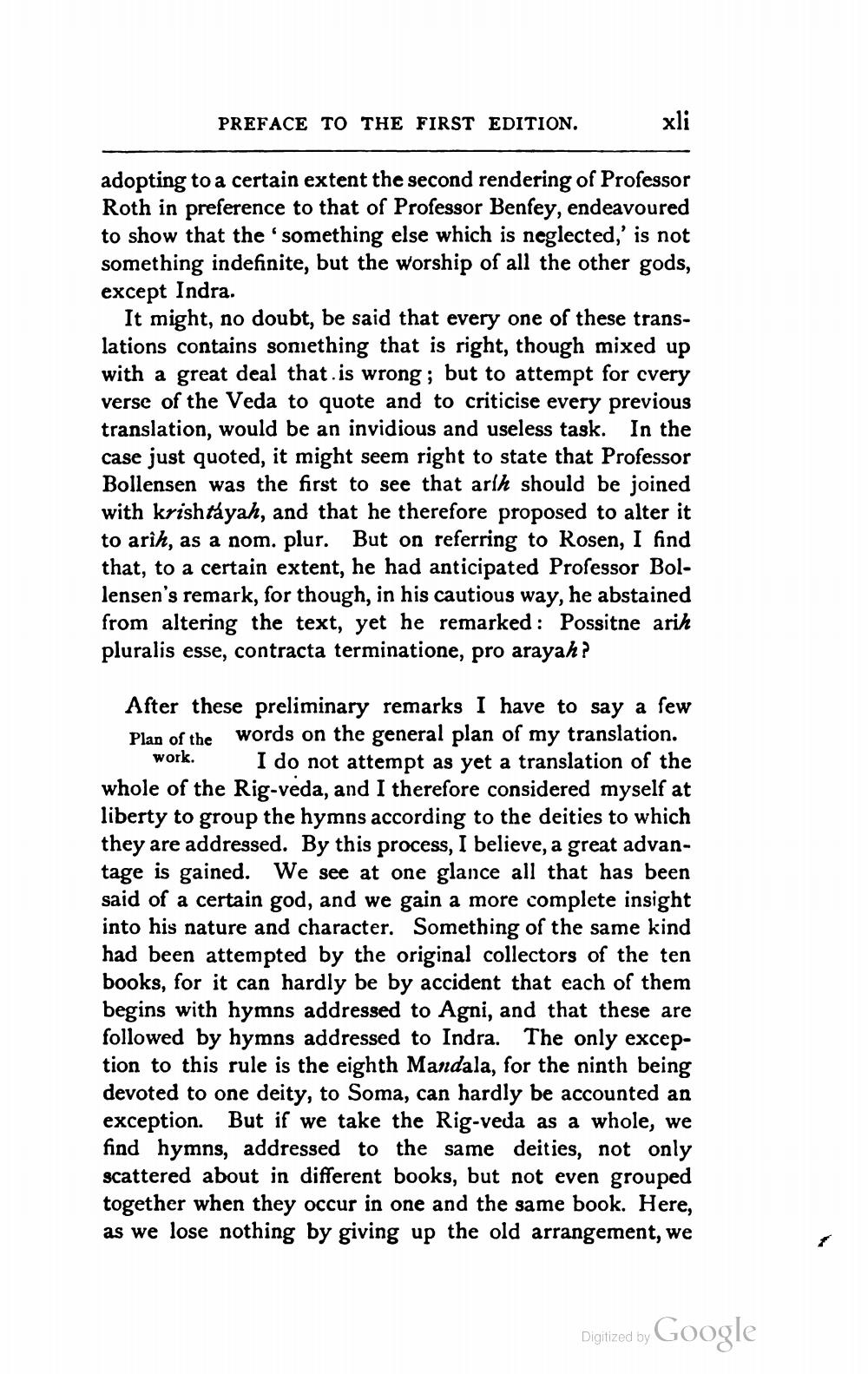________________
PREFACE TO THE FIRST EDITION.
adopting to a certain extent the second rendering of Professor Roth in preference to that of Professor Benfey, endeavoured to show that the something else which is neglected,' is not something indefinite, but the worship of all the other gods, except Indra.
It might, no doubt, be said that every one of these translations contains something that is right, though mixed up with a great deal that is wrong; but to attempt for cvery verse of the Veda to quote and to criticise every previous translation, would be an invidious and useless task. In the case just quoted, it might seem right to state that Professor Bollensen was the first to see that arlh should be joined with krishtayah, and that he therefore proposed to alter it to arih, as a nom. plur. But on referring to Rosen, I find that, to a certain extent, he had anticipated Professor Bollensen's remark, for though, in his cautious way, he abstained from altering the text, yet he remarked: Possitne arih pluralis esse, contracta terminatione, pro arayah?
After these preliminary remarks I have to say a few Plan of the words on the general plan of my translation.
work. I do not attempt as yet a translation of the whole of the Rig-veda, and I therefore considered myself at liberty to group the hymns according to the deities to which they are addressed. By this process, I believe, a great advantage is gained. We see at one glance all that has been said of a certain god, and we gain a more complete insight into his nature and character. Something of the same kind had been attempted by the original collectors of the ten books, for it can hardly be by accident that each of them begins with hymns addressed to Agni, and that these are followed by hymns addressed to Indra. The only exception to this rule is the eighth Mandala, for the ninth being devoted to one deity, to Soma, can hardly be accounted an exception. But if we take the Rig-veda as a whole, we find hymns, addressed to the same deities, not only scattered about in different books, but not even grouped together when they occur in one and the same book. Here, as we lose nothing by giving up the old arrangement, we
Digitized by Google




